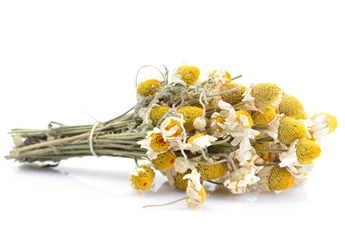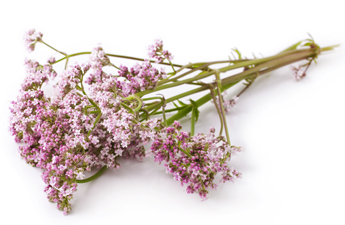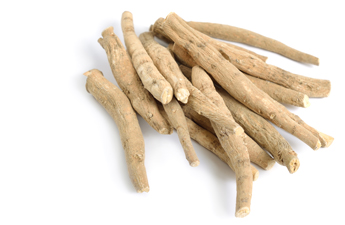20 Herbs for Cold & Flu
By Kyla Sheffield
The seasons are changing, and with the cooler weather sometimes comes runny noses, sore throats, sneezing, aches, pains & fevers! But never fear, herbs are here!
Herbs are a great way to build up and support the immune system, as well as warm you up with a delicious cuppa! Here’s a list of our favourite herbs as well as medicinal mushrooms to help you through the autumn & winter months.
- Echinacea
Famous for its ability to stop a cold or flu in its tracks, Echinacea is a great remedy against bacteria, viruses and fungi. It stimulates the action of the body’s immune system to attack invading organisms. Echinacea is also a powerful anti-inflammatory, and can assist in arthritis – which can be more bothersome in cold weather. It is also effective for treating wounds, and can stimulate the growth of new tissue.
- Ginger
Ginger is a great herbal ally to have on hand during the cold weather, as it stimulates circulation, aids digestion and increases perspiration. This action of making you sweat can help flush out a fever, and toxins as well. Ginger is also well known to assist nausea and travel sickness (in case you’re taking a holiday this winter), and can help with gastrointestinal complaints such as gas and stomach cramps (great if you’ve eaten too much). If you have cold hands and feet, hot ginger tea can do wonders (try it combined with Ginkgo).
- Elecampane
This excellent lung tonic is probably less well known, but deserves a place in your herb cupboard. Elecampane is a premier herb for clearing congested lungs, great for bronchitis, emphysema and any chesty cough. Its powerful expectorant action helps clear out mucus, and its high mucilage content also soothes irritated tissues. It is also anti-bacterial and stimulates digestion due to its bitter principal.
A traditional Amazonian medicine with a long history of use, Cat’s Claw is another great immune stimulant. It is rich in proanthocyanidin, a powerful antioxidant and free radical scavenger. This, combined with its ability to increase white blood cells, has made it a top choice in the natural treatment of cancer. Cat’s Claw cleanses the entire intestinal tract, assisting with many gastrointestinal disorders. It is also an anti-inflammatory used for arthritis as well as muscle strains and injuries. Cat’s Claw is a great herb to remember when your immune system is low, and can be used as a general daily tonic. PRECAUTIONARY NOTE: Use with caution if on blood thinning medication.
The leaves of this beautiful Australian rainforest tree make a delicious uplifting yet relaxing herbal tea that is excellent for colds and flus. In the 1991 Australian Journal of Medicinal Herbalism it has been reported to be antifungal, anti-viral, a calmative and a sedative. The leaves are full of wonderfully fragrant citral oil, smelling of a mixture of lemon and lime. Reach for a cup of this great Aussie native next time you’re feeling down!
- Propolis
Propolis is not actually an herb but a product of honeybees, made from tree sap which they collect and use to seal their hives. For humans, it is used as a natural immune booster, which can help fight infections, as well as heal wounds. Propolis has been found to be effective against bacteria, fungi and viruses (including herpes simplex). It is commonly used in oral health products and is used as a mouthwash to help fight infection and stimulate healing. It makes an excellent gargle or spray for sore throats.
- Astragalus
This herb comes to us from Traditional Chinese Medicine, where it has long been used as an immune system tonic. It stimulates the body’s immune response against viruses and increases the activity of white blood cells. It is valuable in the prevention of recurring colds, debilitating viral infections and chronic illnesses. Another herb to remember – Elderflower – great for fevers and sinus congestion.
- Mullein
This is one of the top herbs for respiratory problems – in particular dry cough, hoarseness, bronchitis, phlegm, whooping cough, etc. It opens the lungs, lubricates the mucous membranes, relaxes the larynx and opens the sinuses. Mullein also stimulates fluid production and is thus useful for expelling phlegm.
- Elderberries & Elderflowers
Elder has been used for hundreds (maybe thousands) of years to help combat the symptoms and quickly relieve colds & flus. The flowers are excellent for sinus congestion, and to help promote sweating, thereby reducing fevers. The berries make a delicious syrup or tea that has amazing antiviral, antioxidant and immune boosting properties, and can help lessen the severity of a cold or flu.
- Cinnamon
This popular flavouring spice is also an amazing herbal helper in the cold months. Cinnamaldehyde, the main active component of cinnamon, can help fight bacterial and fungal infections. Cinnamon is also loaded with antioxidants, is an anti-inflammatory, and improves circulation. Cinnamon ginger tea with lemon and honey is a classic warm drink for colds and flus. It will get your blood flowing and can help flush out a fever.
- Yarrow
Yarrow also has long been used to promote sweating in cases of colds, flu, and fevers, thus helping the body’s natural mechanism to flush out simple infections. Its astringent action can lessen excess nasal secretions & tonify mucous membranes. Yarrow also contains salicylic acid (a compound like the active ingredient in aspirin), and has antispasmodic and anti-inflammatory properties.
- Peppermint
Traditionally used for fevers, colds and influenza, and can also be inhaled to relieve sinus congestion. Peppermint also has antibacterial, antimicrobial and antiseptic properties, so can be effectively used to help fight bacterial infections. It is also known to have decongestant properties, so can be an effective treatment for a number of respiratory disorders.
- Catnip
Catnip tea is an excellent choice for colds and flus, especially in children. It is a diaphoretic (increases sweating), helping to flush out a fever. It also calms the nervous system, aiding a good night’s sleep and reducing anxiety, tension and hyperactivity. It is also used for digestive disturbances such as colic, flatulence, diarrhea and stomach cramps.
This soothing and demulcent herb is excellent for sore throats and irritated mucous membranes. It also acts as an expectorant, helping to loosen and expel phlegm. Licorice modulates the immune system and is a top anti-inflammatory as well as a powerful antiviral.
- Tulsi
Also known as Holy Basil, this traditional Ayurvedic herb has been revered in India for thousands of years. Tulsi is an excellent choice for assisting coughs, colds and fevers, as well as improving digestion, relaxing the soul and sharpening the mind. It is considered an adaptogen, an herb which improves resistance to stress, and has been used as a preventative against epidemics such as cholera, influenza as well as malaria. With all this going for it, Tulsi is definitely a must to have on hand during the winter months!
- Ashwagandha
Ayurvedic medicine considers Ashwagandha an immune system booster, and it is typically prescribed to boost the immune system after an illness.
Traditionally, olive leaf was used to boost the immune system and fight viral infections. Studies now show it is effective against many pathogenic microorganisms – viral, bacterial and fungal (including HIV, colds, influenza, herpes, giardia, malaria, candida, salmonella, staph and cholera). It is also a potent antioxidant, which helps protect against environmental and dietary stress and the effects of ageing.
- Reishi
Reishi is valued as a powerful immune booster, anti-inflammatory and adaptogen. Reishi contains triterpenes that reduce histamine reactions as well as protecting against viral, bacterial and fungal infections.
- Chaga
Chaga has an abundance of Beta-D-Glucans which help balance the response of the body’s immune system. This means that chaga helps boosts the immune system when necessary, but slows it down when it’s overactive. This super antioxidant (ORAC 50,000) is more potent than any other superfood! It is also a powerful adaptogen, in fact recent research found it to be the most adaptogenic substance on earth!
- Cordyceps
The Taoists revere this rare fungus as a life-enhancing herb, immune stimulant, and overall tonic. It benefits respiratory function, and helps the body utilise oxygen. Like other medicinal mushrooms, Cordyceps is considered an adaptogen, increasing resistance to stress, boosting stamina, energy and strength.
RECIPES
Super ImmuniTea Brew
This immune boosting tea includes many of our favourite immune tonics in one pot!
http://happyherbcompany.com/content/super-immunitea-brew
Medicinal Mushroom Miso Soup
This delicious & nourishing soup is perfect to help boost the immune system!
http://happyherbcompany.com/content/medicinal-mushroom-miso-soup
Green Gold Super Juice
Rich in vitamin C, with green foods, bee pollen and hemp oil for a delicious super-boost!
http://happyherbcompany.com/green-gold-superjuice
Homemade Throat Lozenges
These simple lozenges are very effective, and easy to make, with only 3 ingredients!
PRODUCTS
Here are some of our favourite Happy Herb products for Cold & Flu season.
Cold and Flu Tea Blend – an excellent blend of herbs to blast out those bugs.
Immune Warrior Tea Blend – An excellent warming and immune tonic tea blend.
ImmuniTea – A liquid herbal extract full of potent immune boosting herbs.
Immune Booster Spagyric – A liquid herbal spagyric full of immune boosting herbs.
Propolis & Manuka Spray – This is absolutely THE BEST for sore throats & to ward off infection.
REFERENCES
David Hoffman (2003), Medical Herbalism
Isabell Shippard (2007), How can I use Herbs in my Daily Life?
Rain-Tree Tropical Plant Database: http://www.rain-tree.com




 Nextwave
Nextwave

